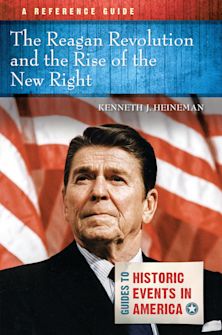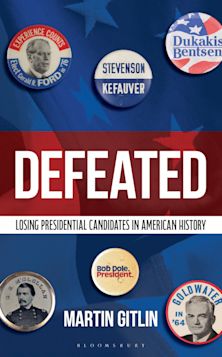- Home
- ACADEMIC
- History
- United States History
- John Quincy Adams
This product is usually dispatched within 3 days
- Delivery and returns info
-
Free CA delivery on orders $40 or over
You must sign in to add this item to your wishlist. Please sign in or create an account
Description
This new book focuses on John Quincy Adams's extensive role in foreign policy, including his years as secretary of state and as president. Brief but thorough, John Quincy Adams: Policymaker for the Union analyzes Adams's foreign policy accomplishments during key moments in American history, including the Rush-Bagot Agreement, the Transcontinental Treaty, the recognition of the Spanish-American republics, and the Monroe Doctrine. At the same time, the book shows that Adams was far less successful than many historians suggest. John Quincy Adams: Policymaker for the Union focuses on Adams's ideals of the centrality of the union to American happiness, the necessity of federal action to protect the union, and the indivisibility of foreign and domestic concerns. This book's examination of these three points casts new light on the logic behind many of Adams's accomplishments and also exposes the sources of some of his failures. This is the first study to examine how Adams's views ultimately led to his failure as a policymaker. This book is ideal for courses in diplomatic history, American history, and American political history.
Table of Contents
Chapter 2 The Storms of War and Peace, 1807-1817
Chapter 3 A Dangerous Neighborhood, 1817-1821
Chapter 4 A Frustrating World, 1821-1825
Chapter 5 A Troubled Presidency, 1825-1829
Chapter 6 An Unexpected Career, 1829-1848
Product details
| Published | Mar 01 2001 |
|---|---|
| Format | Paperback |
| Edition | 1st |
| Extent | 164 |
| ISBN | 9780842026239 |
| Imprint | Rowman & Littlefield Publishers |
| Dimensions | 227 x 164 mm |
| Series | Biographies in American Foreign Policy |
| Publisher | Bloomsbury Publishing |
About the contributors
Reviews
-
A highly readable and insightful biography of John Quincy Adams, a complex, brilliant, and often contentious and cantankerous man.
James Roger Sharp, Syracuse University
-
The most impressive single volume to date on the foreign policies of John Quincy Adams. It is a succinct but comprehensive account of one of America's most distinguished diplomatists. Lews presents Adams's failures as well as his successes, his shortcomings as well as his virtues, while observing the consistency of a statesman whose devotion to a strong union never wavered in the face of changing political environments.
Lawrence S. Kaplan, emeritus director, Lyman L. Lemnitzer Center for NATO and European Union Studies
-
This book should be required reading not only for students of early American diplomatic history, but for anyone interested in the political history of the United States in its formative decades.
Peter S. Onuf, Thomas Jefferson Foundation Professor, University of Virginia, and author of Jefferson's Empire: The Language of American Nat

































